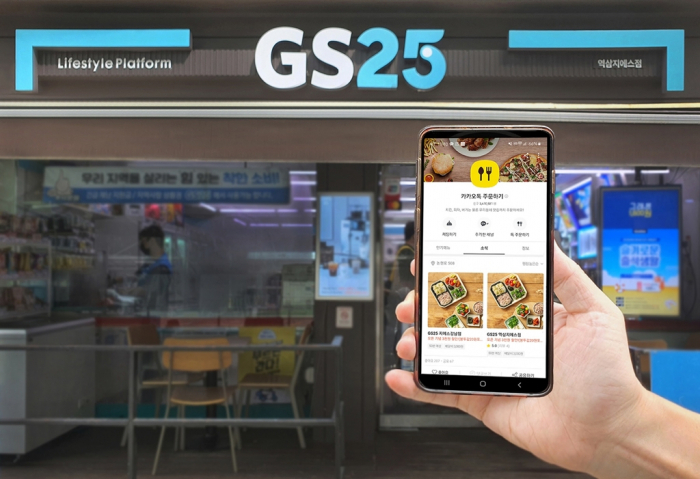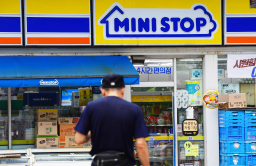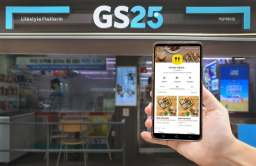-
KOSPI 2577.27 -2.21 -0.09%
-
KOSDAQ 722.52 -7.07 -0.97%
-
KOSPI200 341.49 +0.02 +0.01%
-
USD/KRW 1396 -2.00 0.14%
GS Retail shares tumble as new services widen losses
Worse-than-expected Q1 results raise an alert to the convenience store chain's spending on new businesses
By
May 08, 2022 (Gmt+09:00)

Shares in South Korea's GS Retail Co. suffered their worst percentage fall in nearly five years on May 6, after the convenience store operator's first-quarter results sharply missed analyst forecasts due to widening losses from its online businesses.
Last year, the GS Group unit spent over 400 billion won ($315 million) buying stakes in delivery service providers and a taxi-hailing app Kakao Mobility Corp.
The spate of investments were part of the retailer's efforts to strengthen last-mile delivery services to increase its online presence, utilizing its 16,000 convenience stores and supermarkets nationwide in aggregate.
However, its worse-than-expected first-quarter earnings heightened concerns about the country's No. 2 convenience store chain's new businesses, analysts said.
The share price of GS Retail tumbled 10.05% to close at 26,400 won on May 6, versus a 1.23% decline in the wider Kospi index. The share performance on Friday marked its biggest one-day percentage decline since August 3, 2017, when it plunged 15%.
By comparison, its rival BGF Retail ended flat at 187,500 won on Friday. BGF Retail operates CU, South Korea's largest convenience store chain.
GS Retail's operating profit decreaed by 27% on-year to 27.3 billion won ($21.5 million) in the January-March quarter, 60% less than the consensus estimate by brokerage companies.
However, its revenue grew 23% to 2.6 trillion won during the same period.
Kiwoom Securities analyst Park Sang-joon blamed the tumble in operating profit on the deepening losses from GS Retail's digital business, which increased by 3 billion to 4 billion won in the first quarter alone to a total 30 billion won.
Last year, GS Retail acquired a stake in Mesh Korea Co., which runs the quick delivery service provider Vroong, and shares in the country's No. 2 food delivery app Yogiyo.
It also has invested 65 billion won in Kakao Mobility Corp., South Korea's No. 1 taxi-hailing app.FROM BUY TO HOLD
Following the disappointing quarterly results, six brokerage houses have updated their forecasts for GS Retail, with five of them downgrading the stock to "neutral" from "buy."
IBK Investment & Securities Co. was the only one of the six brokerage houses that stuck to its buy recommendation for GS Retail. But it lowered its earnings per share estimate for the retailer.
By contrast, three out of five brokerage houses that cover BGF Retail raised their target prices for the stock, ahead of its earnings release on May 9.
Shares in GS Retail have shed 2.04% since the start of February, despite hitting their nearly five-month high of 29,850 won early last week.
BGF Retail has gained 15.74% over the given period.
Write to Sul-Gi Lee at surugi@hankyung.com
Yeonhee Kim edited this article.
-
 Mergers & AcquisitionsLotte acquires Ministop Korea for $260 mn from Aeon
Mergers & AcquisitionsLotte acquires Ministop Korea for $260 mn from AeonJan 23, 2022 (Gmt+09:00)
-
Dec 02, 2021 (Gmt+09:00)
-
 Mergers & AcquisitionsDelivery Hero sells Yogiyo to GS Retail, Affinity-led group
Mergers & AcquisitionsDelivery Hero sells Yogiyo to GS Retail, Affinity-led groupAug 15, 2021 (Gmt+09:00)



